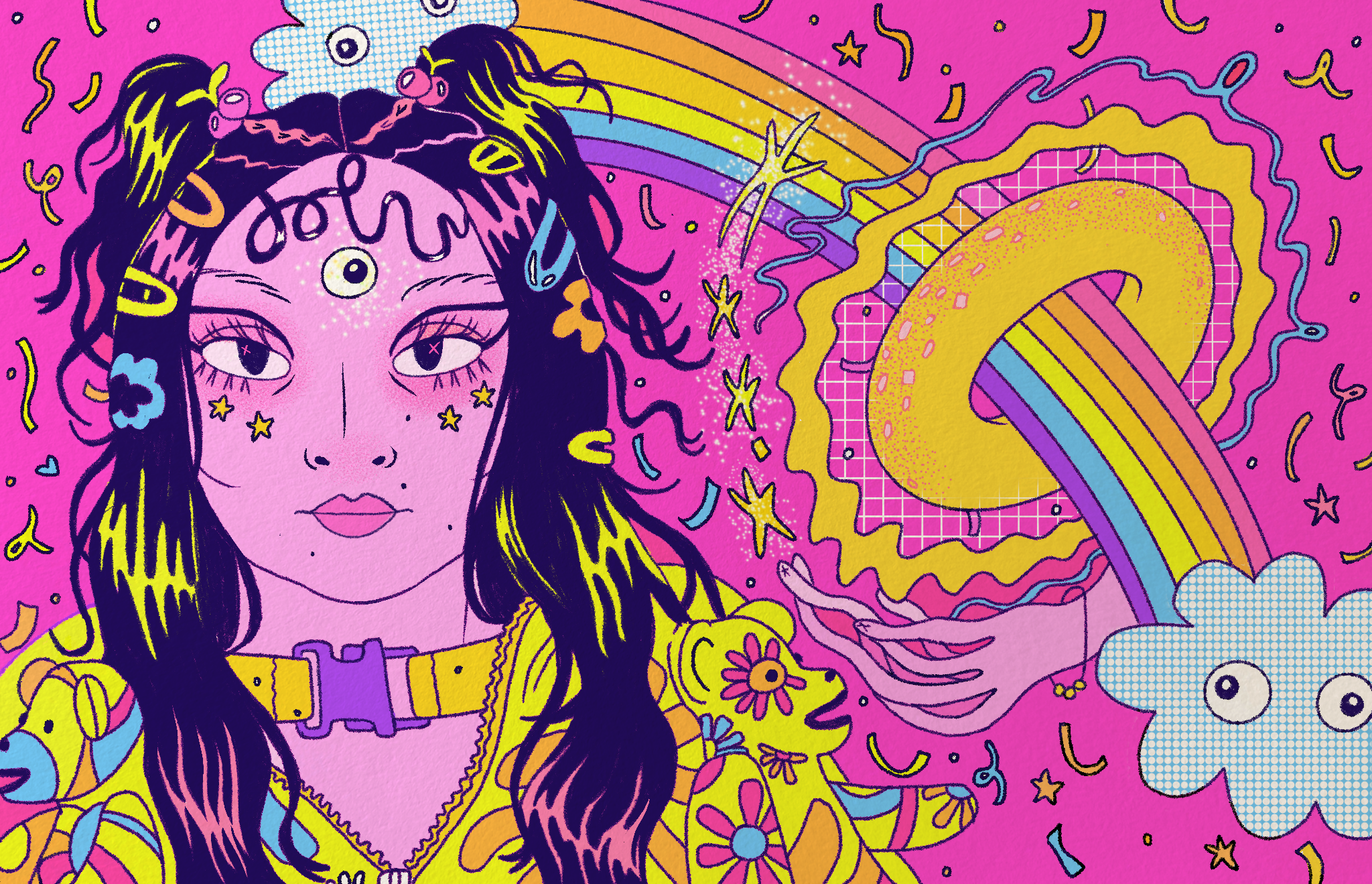Exploring Queerness, as Defined by 'Everything Everywhere All At Once'
Artwork by Casey Beifuss
This discussion contains spoilers for Everything Everywhere All At Once.
Since its release, Daniel Kwan and Daniel Scheinert’s independent film Everything Everywhere All at Once has been claimed by queer audiences for its absurd depictions of reality across worlds, strung together by love and tension between family members. Though it is not marketed as an “LGBT film,” the story centers on the strained relationship between Joy (Stephanie Hsu) — who is also lesbian multiversal agent of chaos, Jobu Tupaki — and her Chinese immigrant mother, Evelyn Wang (Michelle Yeoh). For queer children of immigrants in particular, the sci-fi movie somehow feels like a realistic representation of our lived experiences, despite its bizarre, sometimes ridiculous settings. But the nonsensical nature of the film is precisely what makes it so queer in the first place.
This film has multiple lesbian relationships on-screen — Joy and Becky, and hot-dog-finger-universe Evelyn and Deirdre — and the gay daughter/hesitant mother dynamic is a main point of contention. However, the actual queerness of the film lies within its philosophical claims. Using definitions of “queer” from scholars of queer theory, this movie supports the idea that queerness is non-linear, not concrete, and is produced when any behavior falls outside of normative structures of race, class, gender, or sexuality. So yes, Jobu Tupaki is queer because she likes women, but also because of her campy, comical, nihilistic, yet sensitive character that aims to disrupt reality in her “fractured” state of mind, allowing herself to experience every reality of the multiverse at once.
Stephanie Hsu as Joy Wang/Jobu Tupaki
“‘Right’ is a tiny box invented by people who are afraid,” Jobu claims. “And I know what it feels like to be trapped inside that box.” Her extreme counter to “correct” normative behavior takes form in her outrageous outfits and usage of sex toys as weaponry — elements that solidify her, for aesthetics alone, as a queer icon. But under the glittery, devil-may-care demeanor she carries herself with is an intense suffering and loneliness that comes with “seeing and knowing all.” She is an antagonist, whose motives for destruction are unclear; eventually, it is revealed that she is building a black hole as a method of ending her own life, to stop feeling everything, everywhere, all at once.
There is an idea that queer theorist Jose Muñoz posits: queerness is a type of horizon. Much of queer theory unpacks how systems of oppression render minorities immobile. The experience of living under multiple degrees of oppression, the weight of that awareness, at times seems almost too insufferable to bear. But there are glimpses of a horizon. A horizon of a queer, liberating future — one we may never get to fully live though, but a future nonetheless. And it is these glimpses that we should live for.
The hyper-awareness that Joy and Evelyn experience can be likened to the enlightening yet devastating feeling of being aware of everything that is happening in this world — every institution that seems impenetrable, every effort that feels futile. “Here, all we get are a few specks of time where anything of this actually makes any sense,” Jobu says. It feels bleak, and it rings true. But Evelyn responds, “Then I will cherish these few specks of time.” Muñoz’s ideas are combative to queer hopelessness in the face of despair, much like Evelyn’s desire to be with her daughter in the contradicting chaos of the multiverse. Both sentiments tell queer audiences to look for kinship, to look for glimpses, to look for specks of time that are queer and beautiful, and live for each next one.
What makes this film hit especially close to home for queer children of immigrants is the intergenerational acceptance of queerness in every sense of the word. The prospect of arriving at a place where we are fully seen and understood by the family we love is profound. It is not until Evelyn herself becomes like Jobu, letting herself feel everything, does she understand her daughter. And it is not until Jobu chooses to stick around for those few specks of time does she begin to mend her relationship with her mother. With millions of tragedies and discoveries constantly screaming for our attention, like the millions of universes screaming for Joy and Evelyn’s attention, simply staying and being here with family — given or found — is a queer, radical act. ♦


